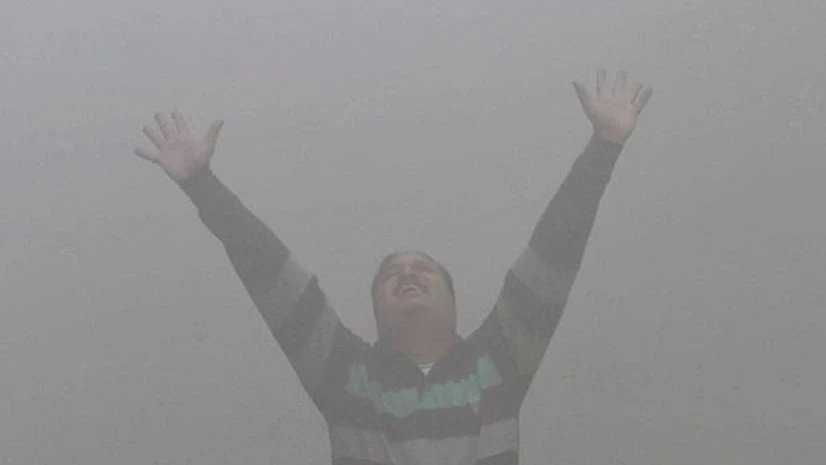Air quality in the National Capital Region saw a marginal improvement from "severe plus" to "severe" while the National Green Tribunal turned down a Delhi government plea for exemptions from the odd-even traffic scheme.
The Delhi government made the fresh plea before the top green court that the odd-even scheme for four-wheelers be implemented in neighbouring states with exemptions for women and two-wheelers for a year.
Delhi Chief Minister Arvind Kejriwal is slated to meet his Haryana counterpart Monohar Lal Khattar in Chandigarh on Wednesday to discuss the raging issue of stubble-burning. Punjab Chief Minister Amarinder Singh, however, rejected Kejriwal's plea for the meeting on stubble-burning and asked him to refrain from "trying to politicise a serious issue".
The Delhi government had decided to implement the odd-even vehicle scheme from November 13-17, with exemption to women drivers and two-wheelers as in previous two exercises. Rejecting the petition, the NGT had said there was "no logic" to the Delhi government proposal.
In the second review petition, the Delhi government sought implementation of the odd-even scheme in neighbouring states as well, or at least part of the NCR, including places in Punjab, Haryana and Uttar Pradesh, stating that they had a cumulative effect on Delhi's air quality.
"Direct neighbouring states to implement the odd-even scheme," said the new review petition of the Delhi government.
Defending its demand for exemption for women drivers from the odd-even scheme, the Delhi government pointed to the comfort of women drivers and continued to demand it in the new petition.
More From This Section
"Such women will not feel comfortable while travelling in heavily crowded buses," the fresh petition said, adding that the Delhi government would otherwise need at least 2,500 additional buses to accommodate women and two-wheeler riders.
According to the government, there are over 68 lakh two-wheelers in Delhi, of which 25 lakh ply on the roads daily.
The new petition pointed out that the shortage of buses would be largely resolved in a year and sought exemption until then.
"Exempt two-wheelers and women drivers for one year or till another 2,000 buses are engaged," the Delhi government urged the tribunal.
Earlier, the NGT rapped the Delhi government for its first review plea filed on Tuesday, asking why exemption be given to two-wheelers and why the government could not run special busses to accommodate women drivers.
The tribunal also rapped the Delhi government over the delay in the procurement of 4,000 additional buses. Following the tribunal's order, the Delhi government withdrew its petition.
The national capital on Tuesday saw improvement in air quality as six of the 15 regions recording "very poor" levels rather than "severe" for the first time in the past week.
With wind speeds almost doubling compared with last week and chances of a drizzle in NCR and neighbouring states, the air quality is set to improve further, experts said.
According to the Central Pollution Control Board (CPCB) the average Air Quality Index (AQI) of NCR, including Delhi, was 398 with major pollutant PM2.5 (particles with diameter less than 2.5mm) at 397 units at 6 p.m. This is considered "very poor".
A study released on Tuesday confirmed fears about adverse health consequences due to toxic air breathed in by Delhi residents for the past seven days and said that air pollution had caused six per cent of the total disease burden in the country in 2016.Since November 7, Delhi residents were breathing toxic air with average AQI ranging between 460 and 500. PM2.5 reached dangerous 945 units at some places, including Ghaziabad, 37 times the safe limit.
"Delhi is out of an emergency but not out of danger. The conditions are expected to get better by November 16 and 17. Unfortunately, we are happy even though the air quality is very poor. In many countries, there is an emergency-like condition at this air quality level, which we are cherishing as an improvement," Usman Naseem, a member of the Supreme Court-appointed Environment Pollution Control Authority, told IANS.
According to data from System of Air Quality and Weather Forecasting And Research, six out of 10 monitoring stations across the NCR fell out of "severe" zone to "very poor".

)
